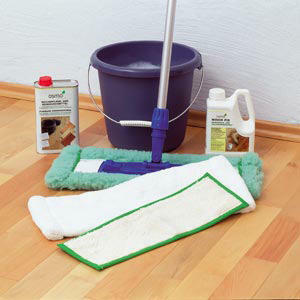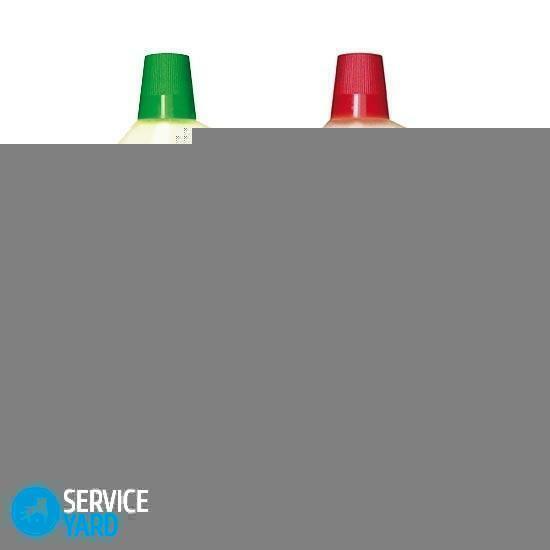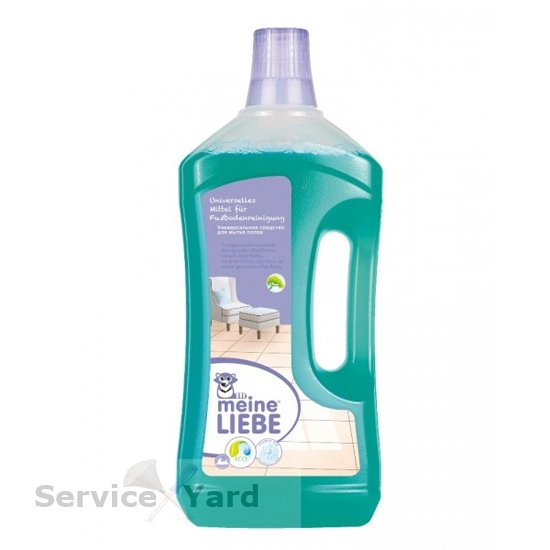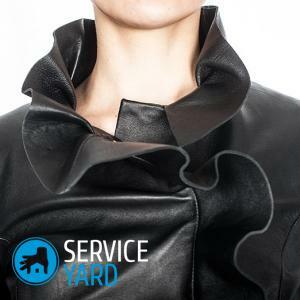
- Composition of chemical detergents
- Selection of a product for different floor coverings
- Folk remedies
Wet cleaning is mandatory for any room - both residential and commercial, as dust and dirt collect on the floors and we breathe it all. Correctly selected detergent for the floor can at times reduce the duration of this tedious procedure, make it pleasant. In addition, you can get the effect of dedusting and anti-static, which will make it possible to wash the floors much less often than usual.
to content ↑Composition of chemical detergents
The products presented in the stores, well removes dirt and disinfects any surface. Also, floor cleaners of different brands give the surface a pleasant color and an updated look, and the room remains a pleasant scent.
Basically, all floor cleaners are available as a liquid or concentrate for dissolving with water. They contain the following components:
- Surface active substances - they cope well with impurities;
- Flavors;
- Dye;
- Antibacterial substances;
- Stain remover.
Of course, their composition depends on brands and manufacturers. But some may have in their composition still soda, which disinfects and destroys microbes, chlorine.
Important! Chlorine is not recommended for use in small rooms - it is better to use such floor cleaners in hospitals, shopping centers and offices.
to the contents ↑Choosing a product for different floor coverings
 Before choosing a floor cleaner, you need to do the following:
Before choosing a floor cleaner, you need to do the following:
- Be sure to read the contents. He should not have chlorine or identical additives in his composition, since the floor in the house does not need to be disinfected at the level of the medical institution.
- The floor cleaner should be suitable for all kinds of surfaces - be universal if you have different materials in different rooms. If you are ready to spend, choose a separate view for each material. So you can get the best effect from wet cleaning and extend the life of each coating.
- If you buy several detergents at the same time, you should give your preference to those products that are manufactured by one manufacturer.
Parquet
Detergents for washing parquet are very delicate. In the market they are represented by a group of clinics, which gently wash the surface and very well clean the surface dirt.
Linoleum
For cleaning such a coating as linoleum, you do not need to use the products that have alcohol in the composition. Powder cleaners are also not suitable. They can spoil your sex - make it darkened or leave whitish, indelible stripes.
Important! If you have a lot of dirt, still use a linoleum floor cleanser in the manufacturer's offer. Do not increase the concentration so as not to damage the coating.
Ceramic tile
It is forbidden to use liquid soap for washing floor tiles. In its composition, a lot of fat - he leaves on the tile bright divorce, which is difficult to remove, and sometimes completely impossible. For tiles, it is better to take funds that contain acids - they are good for removing dirt, and microbes are also killed.
Important! Professional detergents for floors made of ceramic tiles have an anti-slip effect. Its action begins after the floor dries. The product forms an invisible film that slows the appearance of dirt and protects against damage.
Laminate When you choose a laminate wash, remember that it should be with a neutral pH.In addition, it is forbidden to wash the laminate with abrasive agents, as it can damage the coating.
to the contents ↑Folk remedies
If there is no time to run to the store for a detergent, you can wash the floor with improvised means. Sometimes such substances will be much more effective than special household chemicals, while they will ensure the safe use of the coating and can contribute to even a small recovery of material, prolongation of its service life.
Wooden painted floors
 The following sequence of your actions will help you to get rid of stains on wooden painted floors:
The following sequence of your actions will help you to get rid of stains on wooden painted floors:
- Take warm water.
- Add the vinegar. The ratio should be as follows: 1 tablespoon of vinegar per 1 liter of water.
- Rinse the floor with a mortar.
- After drying, cover with linseed oil, in one coat.
Unpainted wood floors
- Take a soapy-alkaline solution. You can put 1 tablespoon of turpentine into the solution.
- Cover the base.
- And then wipe with a hard brush.
Linoleum
It is advisable to wash with warm soap water once a week with laundry soap.
Important! You can not clean linoleum with turpentine, gasoline, alcohol or ammonia - they have a destructive effect on the outer layer.
If you saw dirt on the linoleum, it has darkened or lost its gloss, proceed as follows:
- Take a woolen rag.
- Dampen with warm water.
- Well press.
- Wipe the cover.
Important! Every three months it is advisable to rub linoleum linseed oil with a soft cloth.
Tile
The detergent for the tile is a detergent solution:
- It is good to dissolve the detergent powder with warm water.
- Apply it to the surface of the floor covering.
- Rinse with lukewarm water.
- Wipe dry.
Very often we do not even think about the fact that it's easier to wash floors with folk remedies than to choose chemistry. Yes, chemistry is more convenient to use, but its adverse effect on your health is by far not the last criterion of choice. Therefore, the next time, think about what is actually more profitable for you, both in terms of money and your own safety. Use the tips above and let your floors have a perfect look.



